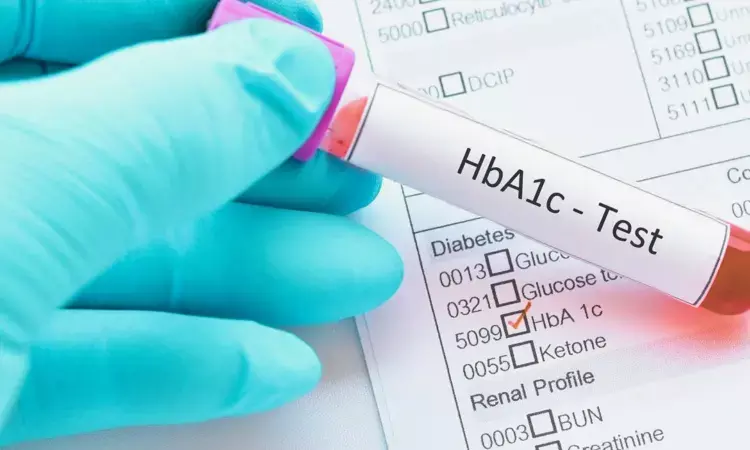- Home
- Medical news & Guidelines
- Anesthesiology
- Cardiology and CTVS
- Critical Care
- Dentistry
- Dermatology
- Diabetes and Endocrinology
- ENT
- Gastroenterology
- Medicine
- Nephrology
- Neurology
- Obstretics-Gynaecology
- Oncology
- Ophthalmology
- Orthopaedics
- Pediatrics-Neonatology
- Psychiatry
- Pulmonology
- Radiology
- Surgery
- Urology
- Laboratory Medicine
- Diet
- Nursing
- Paramedical
- Physiotherapy
- Health news
- Fact Check
- Bone Health Fact Check
- Brain Health Fact Check
- Cancer Related Fact Check
- Child Care Fact Check
- Dental and oral health fact check
- Diabetes and metabolic health fact check
- Diet and Nutrition Fact Check
- Eye and ENT Care Fact Check
- Fitness fact check
- Gut health fact check
- Heart health fact check
- Kidney health fact check
- Medical education fact check
- Men's health fact check
- Respiratory fact check
- Skin and hair care fact check
- Vaccine and Immunization fact check
- Women's health fact check
- AYUSH
- State News
- Andaman and Nicobar Islands
- Andhra Pradesh
- Arunachal Pradesh
- Assam
- Bihar
- Chandigarh
- Chattisgarh
- Dadra and Nagar Haveli
- Daman and Diu
- Delhi
- Goa
- Gujarat
- Haryana
- Himachal Pradesh
- Jammu & Kashmir
- Jharkhand
- Karnataka
- Kerala
- Ladakh
- Lakshadweep
- Madhya Pradesh
- Maharashtra
- Manipur
- Meghalaya
- Mizoram
- Nagaland
- Odisha
- Puducherry
- Punjab
- Rajasthan
- Sikkim
- Tamil Nadu
- Telangana
- Tripura
- Uttar Pradesh
- Uttrakhand
- West Bengal
- Medical Education
- Industry
HbA1c may independently Predict MACE in Non-Diabetic STEMI Patients: Study

Researchers have found in a new study that HbA1c ma serve as an independent predictor of major adverse cardiovascular events (MACE) in non-diabetic STEMI patients. The study emphasized that blood glucose control in pre-diabetic STEMI patients was crucial for improving prognosis after percutaneous coronary intervention.
A study was done to investigate the relationship between glycosylated hemoglobin (HbA1c) concentration at admission and the prognosis of acute ST-segment elevation myocardial infarction (STEMI) in non-diabetic patients. A total of 142 non-diabetic patients with acute STEMI who underwent emergency percutaneous coronary intervention (PCI) in our hospital between January 2023 and December 2024 were enrolled in this study. HbA1c levels and baseline data for all patients were obtained at admission.
According to the HbA1c level, patients were divided into a normal blood glucose level group (group A, HbA1c & lt; 5.7%, N = 57) and a pre-diabetic group (group B, 5.7% ≤ HbA1c ≤ 6.4%, N = 85). The occurrence of major cardiovascular events (MACE) was compared between the two groups after PCI during one-year follow-up. Results: The levels of serum FPG, BNP and the number of patients with multivessel diseases in group B were higher than those in group A (all p < 0.05).
The LVEF in group B was significantly lower than in Group A (P = 0. 017). The total incidence of major cardiovascular events (MACE) within 1 year after percutaneous coronary intervention was significantly higher in group B than in group A (P = 0. 047). In addition, the risk of MACE in group B was 4.98 times higher than that in group A. HbA1c can be used as an independent predictor of MACE in non-diabetic STEMI patients. The control of blood glucose levels in pre-diabetic patients with STEMI should be given high emphasis to improve prognosis after percutaneous coronary intervention.
Reference:
Liu Z, Gao J, Hu W, Yan P, Lu J, Lei T, Xia J. Relationship Between Glycosylated Hemoglobin Concentration and Prognosis of Acute ST-Segment Elevation Myocardial Infarction in Non-Diabetic Patients. Int J Gen Med. 2025;18:3185-3192 https://doi.org/10.2147/IJGM.S519923
Dr. Shravani Dali has completed her BDS from Pravara institute of medical sciences, loni. Following which she extensively worked in the healthcare sector for 2+ years. She has been actively involved in writing blogs in field of health and wellness. Currently she is pursuing her Masters of public health-health administration from Tata institute of social sciences. She can be contacted at editorial@medicaldialogues.in.
Dr Kamal Kant Kohli-MBBS, DTCD- a chest specialist with more than 30 years of practice and a flair for writing clinical articles, Dr Kamal Kant Kohli joined Medical Dialogues as a Chief Editor of Medical News. Besides writing articles, as an editor, he proofreads and verifies all the medical content published on Medical Dialogues including those coming from journals, studies,medical conferences,guidelines etc. Email: drkohli@medicaldialogues.in. Contact no. 011-43720751


